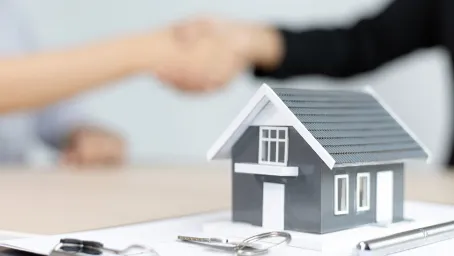Selling a home is a significant financial decision that requires careful consideration, especially when it comes to pricing. Setting the right price for your home can make the difference between a quick sale and a property that languishes on the market. In a competitive real estate market like San Antonio, getting the price right is crucial. This guide will help you understand how to price your home in San Antonio effectively.
Understanding the San Antonio Real Estate Market
Market Trends
Before you set a price for your home, it’s essential to understand the current real estate market trends in San Antonio. The market can vary significantly depending on the time of year, economic conditions, and local factors. Here are some steps to help you get started:
- Research Recent Sales: Look at the sale prices of homes similar to yours in the same neighborhood. Pay attention to homes that have sold within the last six months.
- Current Listings: Check the asking prices of homes currently on the market. This will give you an idea of the competition.
- Market Conditions: Determine whether it’s a buyer’s or seller’s market. In a seller’s market, you might be able to price your home higher due to high demand and low inventory. In a buyer’s market, you may need to be more competitive with your pricing.
Local Factors
San Antonio’s real estate market can be influenced by various local factors, such as:
- Economic Growth: San Antonio’s job market and economic conditions can impact home prices. A growing economy often leads to increased demand for housing.
- Neighborhood Desirability: Some neighborhoods in San Antonio are more desirable than others due to factors like school quality, safety, and amenities.
- Seasonal Trends: Home prices can fluctuate seasonally. For example, prices might be higher in the spring and summer when more people are looking to buy.
Evaluating Your Home’s Value
Comparable Market Analysis (CMA)
A Comparable Market Analysis (CMA) is one of the most reliable methods to determine your home’s value. A CMA involves comparing your home to similar properties that have recently sold in your area. Here’s how to perform a CMA:
- Identify Comparable Homes: Find homes that are similar in size, age, condition, and location to your property.
- Adjust for Differences: Make adjustments for differences between your home and the comparables. For example, if your home has a pool and the comparables don’t, adjust the price accordingly.
- Analyze the Data: Look at the prices of the comparable homes to determine a price range for your property.
Online Valuation Tools
There are several online tools available that can help you estimate your home’s value. Websites like Zillow, Redfin, and Realtor.com offer automated valuation models (AVMs) that provide quick estimates. However, keep in mind that these tools may not always be accurate, as they rely on algorithms and publicly available data.
Professional Appraisal
Hiring a professional appraiser can provide a more accurate valuation of your home. An appraiser will conduct a thorough inspection of your property and consider various factors, including the condition of the home, recent upgrades, and local market conditions.
Factors Affecting Your Home’s Price

Location
Location is one of the most critical factors in determining a home’s value. Homes in desirable neighborhoods or areas with good schools, low crime rates, and convenient access to amenities typically command higher prices.
Size and Layout
The size and layout of your home also play a significant role in pricing. Larger homes with more bedrooms and bathrooms generally have higher values. Additionally, an open and functional layout can make your home more appealing to buyers.
Condition and Upgrades
The condition of your home can significantly impact its value. Homes that are well-maintained and move-in ready tend to sell for higher prices. Consider making necessary repairs and upgrades, such as:
- Kitchen and Bathroom Remodels: These are some of the most impactful upgrades you can make.
- Energy-Efficient Features: Installing energy-efficient windows, appliances, and HVAC systems can increase your home’s value.
- Curb Appeal: Enhancing your home’s exterior with landscaping, a fresh coat of paint, and a well-maintained lawn can make a positive first impression.
Market Demand
Current market demand can affect your home’s price. If there are more buyers than available homes, you may be able to price your home higher. Conversely, if there are more homes for sale than buyers, you might need to set a more competitive price.
Pricing Strategies
Competitive Pricing
Setting a competitive price based on your research and analysis is crucial. Pricing your home too high can deter potential buyers while pricing it too low might leave money on the table. Aim to set a price that reflects the true market value of your home.
Psychological Pricing
Psychological pricing strategies, such as setting your price just below a round number (e.g., $299,900 instead of $300,000), can make your home appear more attractive to buyers.
Pricing for Multiple Offers
In a hot market, pricing your home slightly below market value can generate more interest and potentially lead to multiple offers. This strategy can create a sense of urgency among buyers and drive the final sale price.
Working with a Real Estate Agent
Hiring a real estate agent with experience in the San Antonio market can be invaluable. An agent can provide a comprehensive CMA, offer expert advice on pricing, and help you navigate the selling process. When choosing an agent, consider their:
- Experience and Track Record: Look for an agent with a proven track record of successful sales in your area.
- Local Knowledge: An agent with in-depth knowledge of the San Antonio market can provide valuable insights.
- Marketing Strategy: Ask about their marketing strategy to ensure your home gets maximum exposure.
Preparing Your Home for Sale
Declutter and Depersonalize
Before listing your home, declutter and depersonalize the space. Remove personal items, excess furniture, and any clutter to make your home look more spacious and inviting.
Professional Staging
Consider hiring a professional stager to showcase your home’s best features. Staging can help potential buyers visualize themselves living in the space and highlight your home’s strengths.
High-quality photos and Virtual Tours
High-quality photos and virtual tours are essential in today’s digital age. Professional photos can make your home stand out in online listings and attract more potential buyers.
Conclusion
Pricing your home in San Antonio is a critical step in selling. By understanding the local market, evaluating your home’s value, and employing effective pricing strategies, you can set a competitive price that attracts buyers and maximizes your return. Whether you work with a real estate agent or go the DIY route, pricing your home accurately will help ensure a successful sale.
FAQs
What factors should I consider when pricing my home in San Antonio?
When pricing your home in San Antonio, consider market trends, local factors such as neighborhood desirability, the size and condition of your home, and current market demand. Performing a Comparable Market Analysis (CMA) can also provide valuable insights.
How can I find out the current market trends in San Antonio?
To understand current market trends in San Antonio, research recent home sales in your area, check current listings, and determine if it’s a buyer’s or seller’s market. Local real estate reports and online tools can provide additional information.
What is a Comparable Market Analysis (CMA) and how do I perform one?
A Comparable Market Analysis (CMA) is a method to estimate your home’s value by comparing it to similar properties that have recently sold in your area. Identify comparable homes, adjust for differences, and analyze the data to determine a price range for your property.
Should I hire a professional appraiser to price my home?
Hiring a professional appraiser can provide a more accurate valuation of your home. An appraiser will conduct a thorough inspection and consider various factors, including your home’s condition and recent upgrades, to determine its market value.
How can I make my home more appealing to buyers in San Antonio?
To make your home more appealing, consider decluttering, depersonalizing, and hiring a professional stager. Enhancing curb appeal, making necessary repairs, and investing in upgrades like kitchen and bathroom remodels or energy-efficient features can also attract buyers.
Read More:










